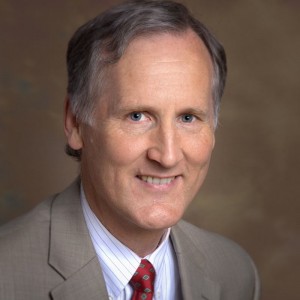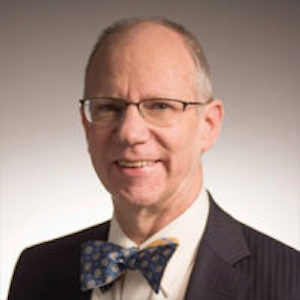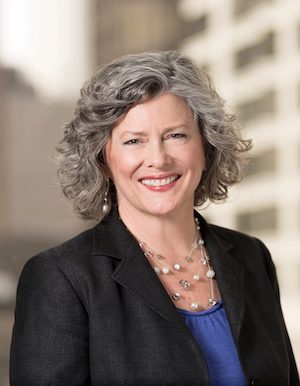
Wright Graduate University partners with MIU to continue teaching its students as it closes
When Wright Graduate University (WGU), a small graduate school in downtown Chicago, was forced to close last spring due to declining enrollment and rising financial pressure, its leaders wanted to find a school where its students could smoothly complete their degrees.
They also hoped to find a school interested in carrying forward their degree programs in leadership and coaching, which their faculty had spent 30 years developing and refining.
They approached MIU last April (2022) with exactly these goals in mind.
Why MIU?
“They realized that, among all American universities, MIU’s educational philosophy was closest to theirs,” said Scott Herriott, MIU vice president of academic affairs.
Wright’s full name is the Wright Graduate University for the Realization of Human Potential.

MIU accepted the invitation, and when the negotiations concluded, WGU received exactly what it wanted, and MIU received students, faculty, curriculum, and new academic programs from WGU, along with financial support from WGU’s donors.
“It’s been a win-win for everyone,” Herriott said.
How the story unfolded

When a college or university closes its doors, “they must provide continuity of degree completion to their students,” Herriott said. “This is called a teach-out program.”
Last March, when WGU announced its plans to close by August, some students arranged to transfer to other schools. But nine students wanted to continue and get their original degree in a teach-out program.
These students were in three degree programs — Master of Business Administration (MBA), MA in Transformational Leadership and Coaching, a Doctor of Education (EdD) in Transformational Leadership and Coaching, all taught online.
“In a teach-out program, the receiving institution (MIU) awards the degrees,” Herriott said. “Typically, the students enter an identical degree program at the receiving institution. MIU has an MBA program, but two of the degrees were new to MIU.”
Herriott contacted MIU’s staff liaison at the Higher Learning Commission, MIU’s accrediting body, for permission for MIU to undertake a teach-out of WGU’s programs.
“Our liaison, Tom Bordenkircher, immediately said he would arrange the necessary approval,” Herriott said. “MIU would be able to award degrees with the same titles WGU was using. He also encouraged us to offer these degrees beyond the teach-out period, to make the administrative effort of the teach-out worthwhile.”
Working with WGU leaders
In mid-May, WGU’s president and vice president of academic affairs came to Fairfield for two days of meetings.
“The feeling was very warm and appreciative on both sides,” Herriott said. “They brought two suitcases full of course binders to show us their curriculum. We were pleased to see an article by MIU professors Skip Alexander and Dennis Heaton in the reading list for one of their courses.”

In the teach-out agreement, MIU accepted the nine continuing students as MIU students, who will take the online courses needed to complete their degrees as originally designed by WGU. To make this possible, MIU is hiring three WGU leaders as faculty:
- Mike Zwell, professor, co-founder, and chancellor of Wright Graduate University
- Lisa Sanden, academic dean
- Gordon Medlock, doctoral program director
All three learned the Transcendental Meditation technique in their local TM Centers over the summer, and they have enthusiastically started the Science of Creative Intelligence course that forms the foundation of MIU faculty training.

The EdD students, all at the dissertation stage, will be supervised by Dr. Medlock. The MA and MBA students will take courses taught by Drs. Zwell and Sanden. Some students will graduate in as few as three months. The teach-out should be complete in Spring 2024.

Professor Herriott and other MIU leaders met with the WGU students via Zoom to explain the teach-out program. “They’re not required to learn TM, because the teach-out contract is for the whole group, institution to institution, not individually by student,” Herriott said. “But we explained that MIU was willing to pay their course fees and that they could learn TM near their homes. By the first week of the new semester, most of them had learned the practice, and others were still working out the time and place.”
“We also had a Zoom meeting with WGU’s trustees and donors,” Herriott said. “One of them turned out to be a 45-year regular TM meditator. Several other trustees want to learn TM, and arrangements are now being made for them also to learn TM near their homes.”
Two foundations that had been supporting WGU financially want to continue their support through MIU.
Two foundations that had been supporting WGU financially want to continue their support through MIU. One is donating to MIU a sophisticated classroom for online learning that had been installed at WGU at a cost of $500,000. Another will donate $500,000 over three years to support the expense of the former WGU faculty offering MIU’s Doctor of Education program to a new group of students.
The WGU degrees all were themed around transformational leadership and coaching. MIU already has coaching courses in the MBA and the BA in Ayurveda Wellness (the Life and Wellness Coaching track). “Our MIU Doctor of Education program will continue the theme of transformational leadership and coaching, and we’ll look carefully at the WGU curricular materials to see what we might use in our own MA on coaching,” Herriott said.
“The HLC’s permission for MIU to take over WGU’s EdD degree is a particularly fortunate outcome,” Herriott said. “We’ll maintain WGU’s focus on coaching initially, but we can expand the degree in many aspects of education, a topic central to MIU’s mission. The EdD also has great potential in China, where we’re partnering with a university that’s now expecting its masters-qualified faculty to get doctoral degrees, and the EdD would be a natural fit.”
“The feeling they gave in the meetings was like, ‘If we’d known about you five years ago, we would have reached out to join forces.'”
— Scott Herriott
“We’re thrilled to have this collaboration with the leaders of WGU,” said Herriott. “Mike, Lisa, and Gordon have become dear friends and faculty colleagues. Coaching is a hot topic in business and academia. The teach-out gives us degree programs we’d been leaning toward and that will become popular. Added to that, we have the kind support of the foundations that supported WGU. Everyone has benefited. They said to us, ‘If we’d known about you five years ago, we would have reached out to join forces.'”
Thank you to Scott Herriott for his contribution to this story.
Banner photo: The Chicago Real Estate Local
